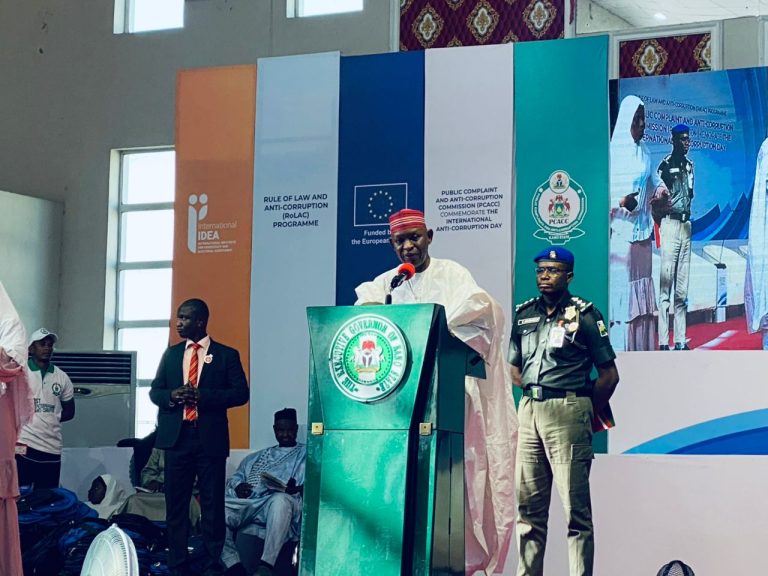By Chinelo Obogo
In its drive to strengthen transparency and accountability, the Kano State government has officially launched its Anti-Corruption Strategy (2024–2028), a comprehensive framework designed to combat corruption and foster integrity across the state.
The strategy was unveiled during an event supported by the European Union-funded Rule of Law and Anti-Corruption (RoLAC) Programme Phase II, implemented by the International Institute for Democracy and Electoral Assistance (International IDEA).The launch coincided with the commemoration of the 2024 International Anti-Corruption Day (IACD), with the theme, “Uniting with Youth Against Corruption: Shaping Tomorrow’s Integrity.” This year’s theme underscores the critical role of young people as drivers of change in the fight against corruption.
Speaking at the event, the governor of Kano State, Abba Yusuf, emphasised the need to tackle corruption, describing it as “a cancer that erodes trust, undermines institutions, and hampers progress.” He said, “Protecting human rights is at the core of our administration’s agenda. We are determined, as a government, to block systemic linkages, investigate corruption, and ensure value for public funds.”
In addition to the strategy launch, the event featured activities such as debates, sensitisation campaigns, and stakeholder discussions. These engagements emphasised the need for stronger collaboration among anti-corruption agencies, civil society, media, and the private sector to tackle corruption effectively.
The RoLAC state coordinator, Ibrahim Bello, highlighted the EU’s commitment to supporting anti-corruption reforms in Nigeria and commended the governor’s reform-minded approach, stating, “The European Union and Internatonal IDEA remains steadfast in its partnership with Nigeria to promote good governance, transparency, and accountability. This strategy is a testament to what can be achieved through collective efforts. The governor is a formidable partner in fighting corruption in the state. He has demonstrated his commitment by working with development partners to ensure a corruption-free state.”
